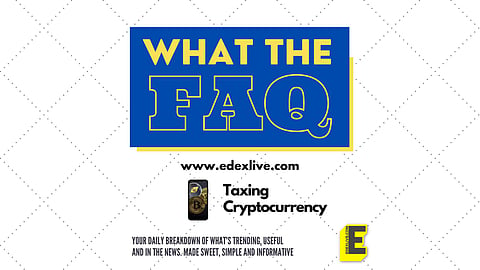

The Union Budget 2022 had some major news in store for digital currency and assets. Finance Minister Nirmala Sitharaman announced that any income from Virtual Digital Assets (VDA) will be taxed at 30%. With the Bill for regulation of cryptocurrency suspected to be tabled in Parliament soon, this development in the budget points to the increasing presence of digital currency and assets such as Non-Fungible Tokens (NFTs) in the market. We take a look at how other countries are dealing with the recent boom in the use of these VDAs.
What does India's proposal to tax VDAs entail?
In her Budget speech, Sitharaman mentioned the "phenomenal increase" in transactions in cryptocurrency and other digital assets, adding that the frequency of these transactions mandated a tax regime. Apart from the taxing of digital assets/currencies transactions, there will also be a 30% tax on the reception of these assets as gifts. This is India's highest tax band. Moreover, Sitharaman proposed that there be a Tax Deducted at Source (TDS) on all VDA payments in order to keep a track of these transactions. The Finance Minister also said that the loss from these transactions cannot be set off against other income.
How does the US approach taxing of VDAs?
There is no tax to be paid if you've simply purchased a digital currency or asset. However, there are different slabs in place for the profit earned from the sale of these assets, depending on how long they have been held. If they have been held for under a year, they will be taxed at short-term capital gains, up to 37%. If sold after more than a year, they can be taxed at up to 15%. There is, however, the option to offset the loss from the sale of these assets, unlike the rule proposed in India.
How do other countries view cryptocurrencies?
The world is as yet not on the same page when it comes to taxing cryptocurrencies. Canada, for example, taxes cryptocurrency as a commodity and paying tax depends on whether there has been income or capital gains from the transactions. The UK follows a similar module. Australia is also one of the other countries that doesn't view cryptocurrencies as traditional money and instead tax them as property. The Netherlands, on the other hand, taxes cryptocurrency under its wealth category.
What sets Bermuda apart from other countries?
A British Island territory in the North Atlantic Ocean, Bermuda is one country that takes regulation of cryptocurrency seriously. It passed the Digital Asset Business Act in 2018, which defines rules for all who indulge in any form of digital asset transactions. However, the country does not impose any tax on income from these transactions.
